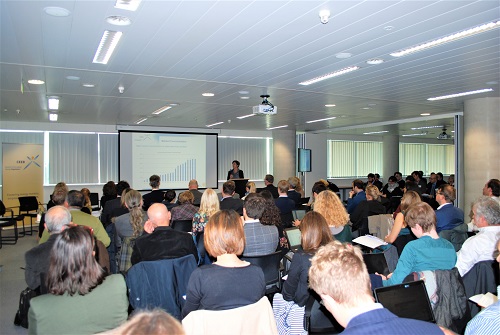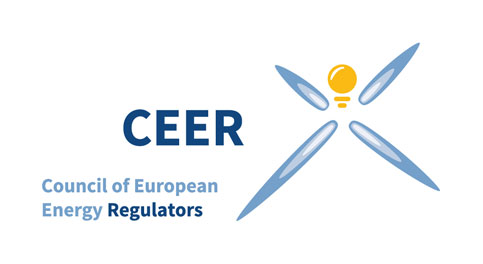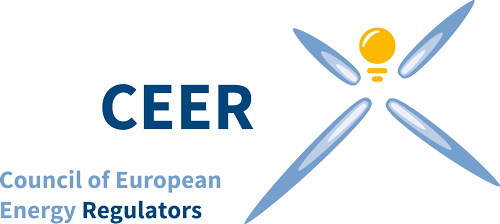November 2017

Editorial
 CEER has published a Retail Markets Report that monitors retail markets across Europe. For more on it and out latest joint ACER-CEER Market Monitoring Report (MMR), see the feature article below.
CEER has published a Retail Markets Report that monitors retail markets across Europe. For more on it and out latest joint ACER-CEER Market Monitoring Report (MMR), see the feature article below.
Also published is a short note on codes of conduct in energy regulatory authorities.
Check out our 3 new brochures on who CEER is and what we do; on CEER’s customer work; and on our initiative of PEER to PEER collaboration (with regulators from other sectors) on consumer rights.
A summary of the proceedings of our first PEER event on bundled products, PPTs, bundled case studies and regulatory guidelines are now online on www.ceer.eu/peer. Also posted on CEER’s website are the PPTs of our 2017 Customer Conference includes findings from the European Commission’s new Prosumer Report.
Don’t miss early bird registration (until end of December) for the World Forum on Energy Regulation (WFER) in Cancun, Mexico (20-23 March 2018). See the International section below.
Regulators’ main findings on consumer protection and enforcement and on retail market monitoring
Monitoring is an important task of energy regulators at national and EU level. Each year, CEER (the European association of energy regulators) publishes the individual country reports of national regulatory authorities (NRAs), each produced in the same format.
CEER also works closely with the EU Agency (ACER) to produce the joint ACER-CEER Annual Report on the Results of Monitoring the Internal Electricity and Natural Gas Markets (known as the ACER-CEER Market Monitoring Report, MMR). This year-long exercise relies on significant resources from ACER and CEER, and a lot of data collected mainly from NRAs.
What’s in the ACER-CEER Market Monitoring Report?
The MMR has the latest data and regulators’ recommendations on Europe’s electricity and gas wholesale markets, consumers and retail market trends. It brings to the forefront key issues regarding Europe’s electricity and gas market.
The MMR report, for the year 2016, comprises a Summary and four parts:
- electricity wholesale markets;
- gas wholesale markets;
- retail (electricity and gas) markets;
- customer protection and empowerment.
For the first time, the report also contained data for the Energy Community countries.
Key findings of the MMR
- Households and businesses benefit from falling EU energy prices
The MMR highlighted that electricity and gas retail prices generally fell in the EU for both household and industrial consumers. European households paid 8.4% less for their gas in 2016 compared to 2015, mostly thanks to improved gas markets, while the electricity household prices went down by 2.1% – the first registered decrease for households since 2008 – thanks to the steady decline of electricity wholesale prices in recent years.
- Barrier to further EU energy market integration still persist
Energy prices fell despite limited capacity available for electricity cross-border trading. Hence, European energy regulators see opportunities for further benefits for EU energy consumers. For example, electricity Transmission System Operators (TSOs) should make a larger share of the existing cross-border capacity available for trading, given that only half of what is technically possible is offered today to the market.
Alberto Pototschnig, ACER Director, called for “more TSO coordination and the equal treatment of intra-zonal and cross-zonal exchanges of power, so as to deliver additional benefits to consumers”.
While gas markets are working better in terms of hub functioning and price convergence, important barriers remain, in particular in South-East Europe, that negatively affect market functioning and liquidity. Whilst the EU gas network codes are making a difference for the better, market conditions, including oversupply and overcapacity, limit their impact. Further TSO and NRA coordination on network codes implementation will enhance market integration.
- Switching supplier should be even faster and reliable comparison tools are needed
Consumer protection and empowerment rights are generally well established. Disconnection rate are about 1% (for electricity and gas). Smart meter roll across Europe is low (25% of electricity households and only 4 countries for gas). Not enough countries have reliable comparison tools (22 in electricity and 18 in gas). Consumer bills are too complex. Once again, this annual MMR finds that regulated prices are still a major barrier to competition.
What’s in the CEER Retail Markets Monitoring Report?
This year, the retail market monitoring of the MMR was less extensive than usual due to ACER budget cuts. Hence, NRAs themselves stepped in. The resulting CEER Retail Markets Monitoring Report (just published) covers issues such as:
- Market structures in Europe
- Customer switching activities
- Price interventions and the persistence of regulated prices.
Key findings of the CEER Retail Markets Monitoring Report
- Although we are seeing new suppliers, retail energy markets in some European countries remain highly concentrated.
-Regulated prices persist in 11 countries for electricity, and 12 countries for gas.
-Household customer electricity switching rates among suppliers have increased from an average of 5% in 2011 to 6.4% in 2016, and from 5.5% in 2011 to 6.4% in 2016. However, this masks a wide variation among countries and overall more needs to be done to encourage consumers to switch and benefit from liberalised retail energy markets.
Market monitoring insights informs regulators (ACER and CEER) work priorities. CEER places a consumer focus to all its work and is a strong advocate of competitive markets and consumer empowerment. In the context of the current discussions on Clean Energy legislation, CEER is calling for supplier switching to be much faster (within 24 hours) to help boost switching rates, for bills to be clear and simple, and for reliable comparison tools.
International
This month, CEER welcomed a group from the African Union Commission on an exchange of experiences, thanks to the support of the European Commission.
The next World Forum on Energy Regulation (WFER) will be in Cancun, Mexico (20-23 March). Early bird registration is until the end of December www.wfer2018.org
Publications
Retail Markets Monitoring Report
International
The next World Forum, an international energy regulatory conference held every 3 years, will be in Cancun, Mexico (20-23 March).
Contact
Tel: +322 788 7330 or
+ 32 484 668 599

